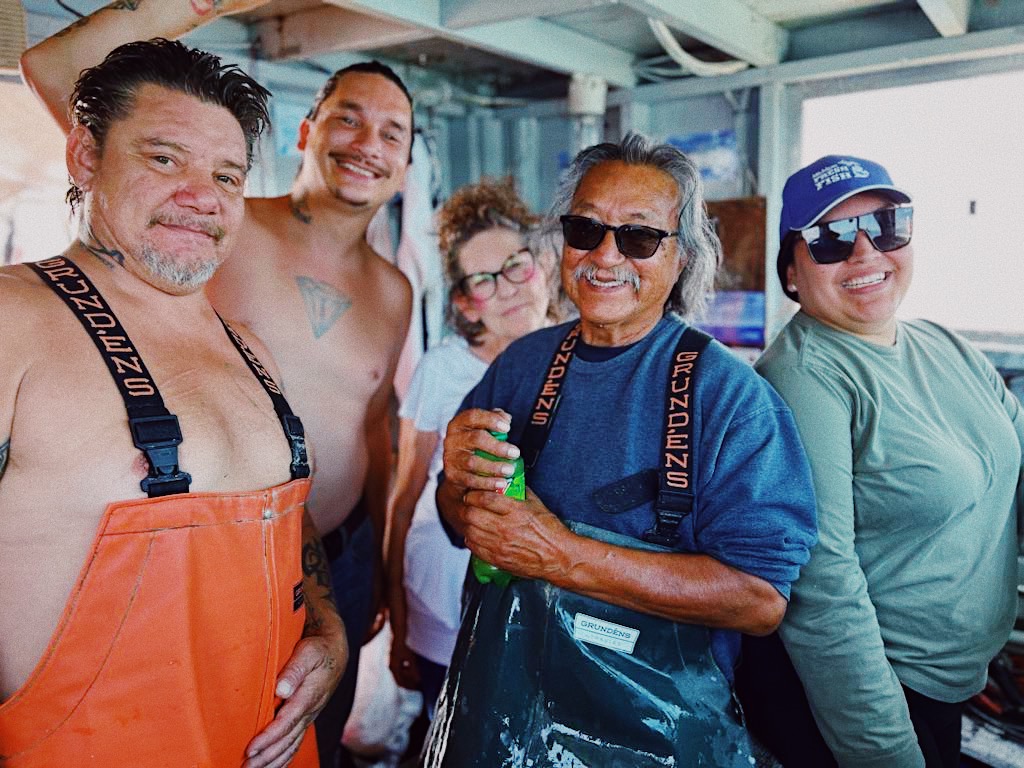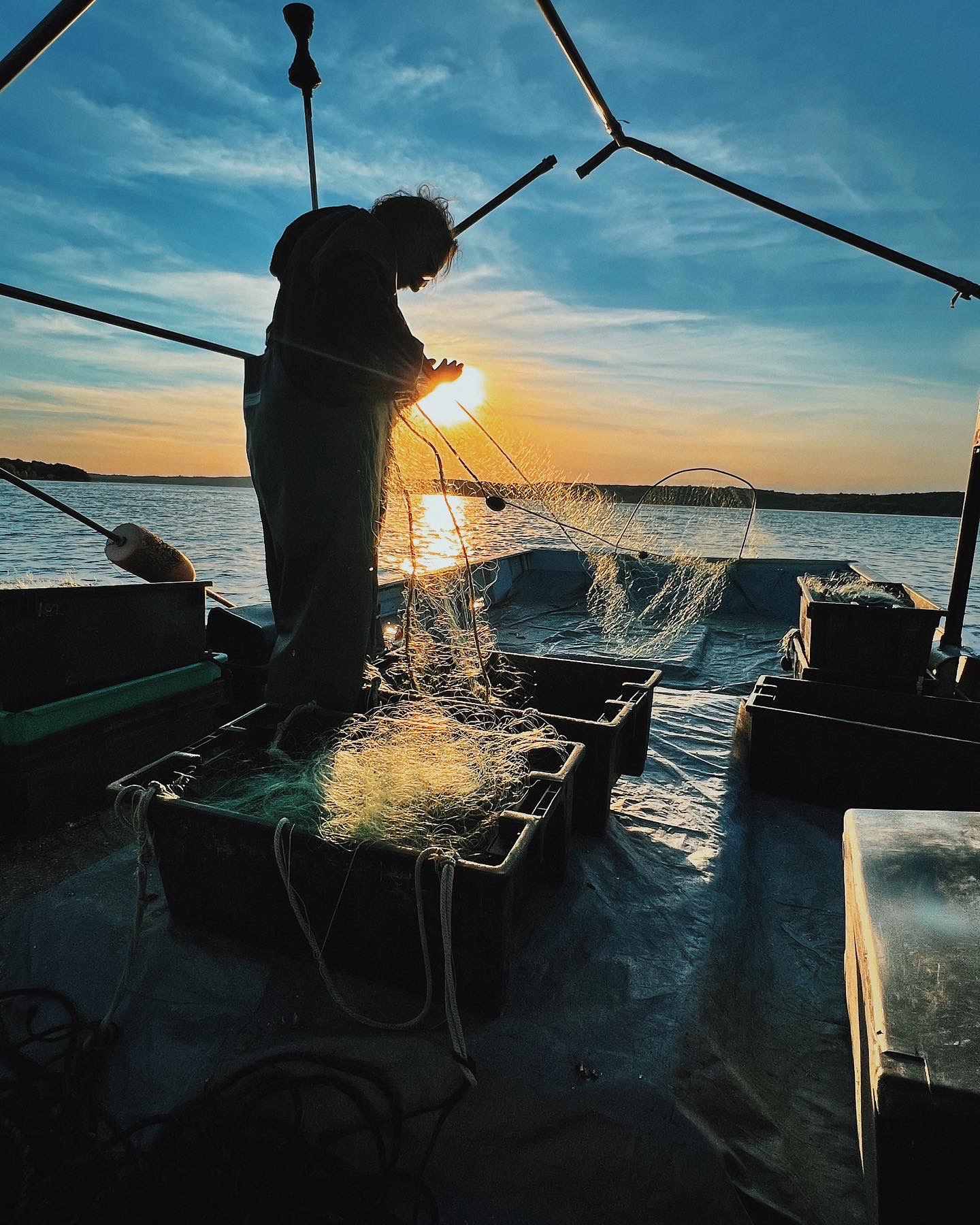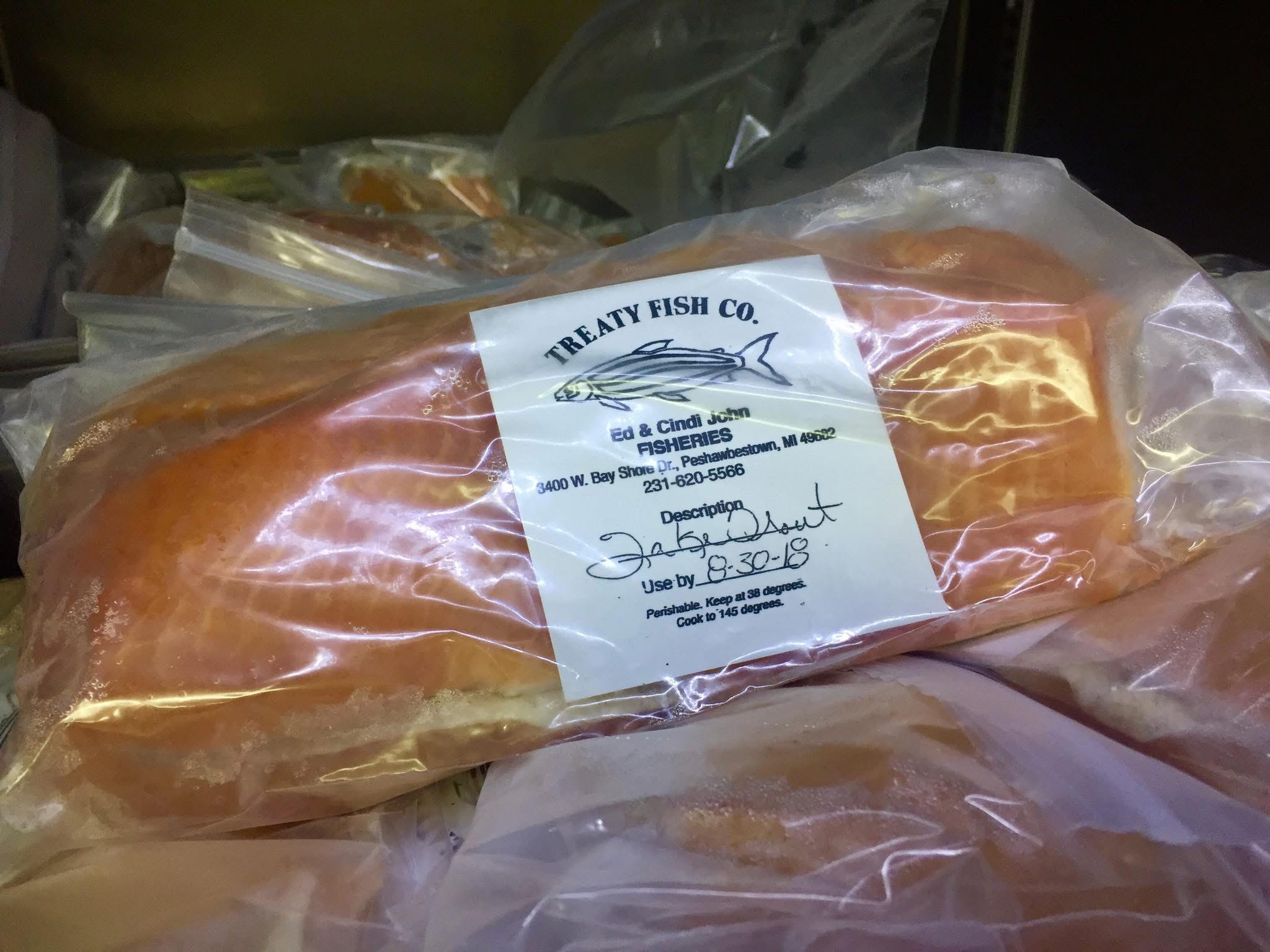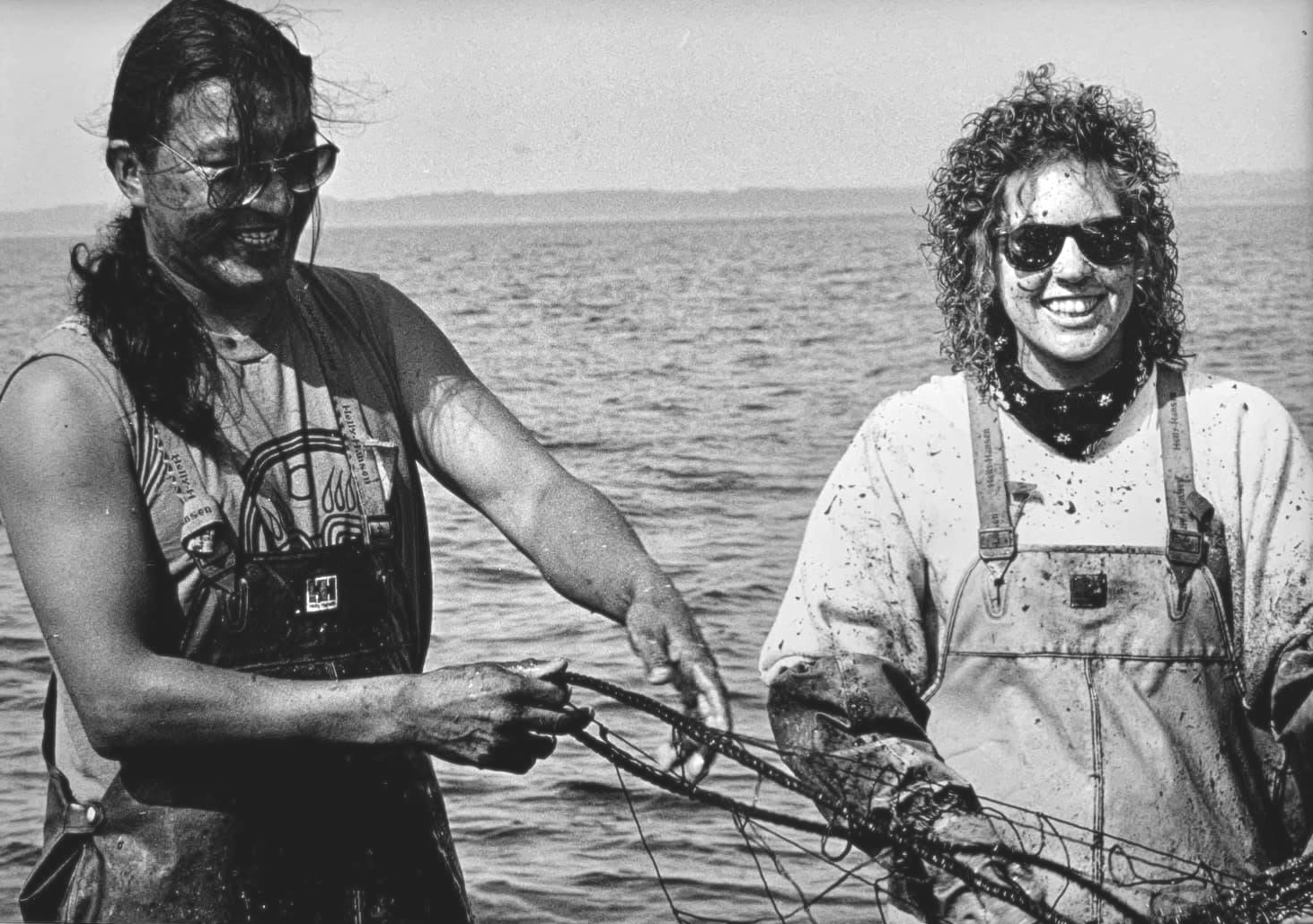Art Form: Tribal fishing and Anishinaabe smoked fish
Location(s): Northport (Leelanau County)
Ed and Cindi John

Treaty Fish Co. summer crew: Shahbaht Anderson, Cameron Schocko, Cindi John, Ed John, and Ruby John; photo by Minnie Wabanimkee

Ed John setting nets; photo by Ruby John

Packaged lake trout filet; photo by Ruby John

Ed and Cindi John c. late 1990s
Ed and Cindi John started Treaty Fish Co. in 1989 in Peshawbestown. Ed learned to fish, set nets, and prepare filets from Arthur Duhamel. Cindi learned about Anishinaabe smoked fish practices from her uncle, Jeeboo Sands. Members of the Grand Traverse Band of Ottawa and Chippewa Indians, they work to carry on this family and community legacy by teaching and employing many members of their extended family. Their daughter Ruby served twice as an apprentice under Cindi in smoked fish preparation, and twice as a mentor herself in fiddling. Cindi sells their smoked fish, filets, whole fish, and fish patties at the Sara Hardy Downtown Farmers Market in Traverse City each week. They also sell directly from their processing facility at the Arthur Duhamel Marina on specific days.
Tribal fishing is a heavily regulated industry, involving treaty rights and reporting to many agencies about the daily catches and locations of these catches. Ed and Cindi take their fishing tug Linda Sue out into the bay almost daily to set gill nets, with a few others in tow to help. They will set nets one day and go back and check them the following day to haul in their catches. Then they return to the marina to process the fish; this involves cleaning, pinboning, portioning, brining, preparing patties, and smoking.
The Johns utilize two of the seven units at the marina’s fish processing building, which was modeled after the utility trailer Cindi retrofitted to meet their needs. Cindi is a creative and artistic force; she designed the labels and signage for their business and worked with the food regulatory agencies to ensure their product meets health and safety standards while also preserving the quality of their fish. In this case, that means packaging each piece individually to avoid the “fishy” taste caused by the skin touching the meat. She is also a visual artist, both in studio practices like photography and painting and in traditional arts like quill work, beading, and sweet grass basket making.
Ruby John writes of her parents’ work, “They have had many Grand Traverse Band community members work with them, and not only work, but learn about this tradition and history of this treaty right within our community. In their time running this business, they have not only supported the community with delicious fresh and smoked fish products, but they have also been able to build a community and kinship at the marina and at the farmer’s market. Any time folks buy from my parents, it’s never just selling fish. Both of my parents will usually also offer a bit of education on fishing, treaty rights, the love for arts and animals from my mom, or a funny sarcastic joke or comment from my dad.”
Ed and Cindi John started Treaty Fish Co. in 1989 in Peshawbestown. Ed learned to fish, set nets, and prepare filets from Arthur Duhamel. Cindi learned about Anishinaabe smoked fish practices from her uncle, Jeeboo Sands. Members of the Grand Traverse Band of Ottawa and Chippewa Indians, they work to carry on this family and community legacy by teaching and employing many members of their extended family. Their daughter Ruby served twice as an apprentice under Cindi in smoked fish preparation, and twice as a mentor herself in fiddling. Cindi sells their smoked fish, filets, whole fish, and fish patties at the Sara Hardy Downtown Farmers Market in Traverse City each week. They also sell directly from their processing facility at the Arthur Duhamel Marina on specific days.
Tribal fishing is a heavily regulated industry, involving treaty rights and reporting to many agencies about the daily catches and locations of these catches. Ed and Cindi take their fishing tug Linda Sue out into the bay almost daily to set gill nets, with a few others in tow to help. They will set nets one day and go back and check them the following day to haul in their catches. Then they return to the marina to process the fish; this involves cleaning, pin boning, portioning, brining, preparing patties, and smoking.
The Johns utilize two of the seven units at the marina’s fish processing building, which was modeled after the utility trailer Cindi retrofitted to meet their needs. Cindi is a creative and artistic force; she designed the labels and signage for their business and worked with the food regulatory agencies to ensure their product meets health and safety standards while also preserving the quality of their fish. In this case, that means packaging each piece individually to avoid the “fishy” taste caused by the skin touching the meat. She is also a visual artist, both in studio practices like photography and painting and in traditional arts like quill work, beading, and sweet grass basket making.
Ruby John writes of her parents’ work, “They have had many Grand Traverse Band community members work with them, and not only work, but learn about this tradition and history of this treaty right within our community. In their time running this business, they have not only supported the community with delicious fresh and smoked fish products, but they have also been able to build a community and kinship at the marina and at the farmer’s market. Any time folks buy from my parents, it’s never just selling fish. Both of my parents will usually also offer a bit of education on fishing, treaty rights, the love for arts and animals from my mom, or a funny sarcastic joke or comment from my dad.”





